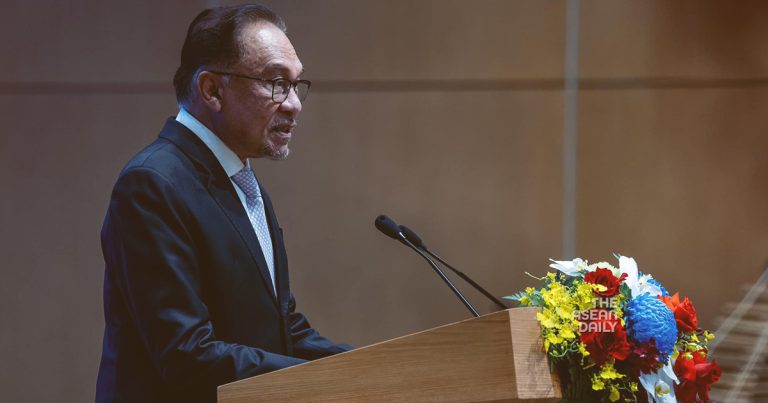2-10-2023 (KUALA LUMPUR) Prime Minister Anwar Ibrahim has suggested an end to universally subsidized healthcare in Malaysia. This bold move signifies a potential inclusion of healthcare in a subsidy rationalization initiative.
During a recent address at the national-level launch of the Madani Medical Scheme and the Madani Afiat programme in Ipoh, Perak, Anwar Ibrahim stated that in addition to removing fuel subsidies for high-income individuals (the top 10 per cent or T10 earners), the government should cease subsidizing healthcare for the wealthiest citizens.
Anwar argued, “For example, in hospitals, the fees for treatment in government hospitals are so low. For the poor, there is now the Madani Medical Scheme and also free treatment in public health care facilities, but the rich also benefit from these subsidies.”
He questioned whether it was justifiable for the government to improve healthcare for all citizens while imposing higher charges on the wealthiest individuals. The audience remained silent, reflecting the gravity of this proposal.
While Anwar criticized fuel subsidies and those provided for the haj pilgrimage by Tabung Haji, he highlighted that these universal subsidies benefitted even the wealthy, who earn substantial incomes or drive luxury cars such as Rolls Royce and Mercedes Benz.
If the Anwar administration proceeds with this initiative to make the top 10 per cent or the affluent pay the actual cost of healthcare in Ministry of Health (MOH) facilities, it remains uncertain how much the government can save, as the wealthiest citizens are more likely to seek care in private health facilities, where they often have medical insurance.
The Anwar administration is preparing to launch a targeted fuel subsidy program early next year, based on the government’s Central Database System (Padu). This system considers various indicators beyond income, including the number of household members, dependent children’s education levels, the number of vehicles, and government assistance received to determine the disposable income of each household.
It’s worth noting that there is already a differentiated fee structure in MOH facilities, based on whether patients were referred from private clinics or hospitals. The Fees Act 1982 imposes the highest fees, or first-class rates, on patients referred to MOH hospitals from private and university hospitals, even for hospitalization and medicine, despite their preference for less expensive third-class treatment.
Cancer patients have long advocated for the withdrawal of the Fees (Medical) (Amendment) Order 2017, as even low-income earners often choose to be diagnosed or undergo their initial surgery in private hospitals to avoid long waits in government hospitals. They then switch to the public sector for more affordable follow-up treatment.
The government currently subsidizes approximately 98 per cent of the treatment cost for citizens at public healthcare facilities, specifically MOH facilities. Public university-run teaching hospitals do charge higher fees for treatment but offer advanced therapies, such as cancer treatments not available in MOH hospitals, at rates considerably lower than private facilities.
Anwar also proposed eliminating sugar subsidies to combat diabetes in the country. According to the National Health and Morbidity Survey (NHMS) 2019, approximately one in five adults aged 18 and above suffers from diabetes, totaling an estimated 3.9 million people.
He suggested introducing a system that slightly raises sugar prices to reduce consumption and generate additional revenue, which would be allocated to diabetes treatment projects. This initiative garnered applause from the audience.
Notably, Anwar did not mention social health insurance in his speech, even though the MOH is currently exploring various models from countries like Singapore, South Korea, Taiwan, and Thailand. Dr. Kelvin Yii, Health Minister Dr. Zaliha Mustafa’s special advisor, provided insights into this.
Prime Minister Anwar Ibrahim also addressed the issue of overcrowding in public hospitals. He acknowledged the “extraordinary” congestion, attributing it to years of insufficient actions and allocations. Anwar expressed a commitment to prioritize healthcare facilities, such as clinics and hospitals, in the upcoming Budget 2024, to be presented this month.
The COVID-19 pandemic exacerbated the overcrowding issue, leading to delayed care for non-COVID cases over the past three years. This situation resulted in a significant increase in resignations among exhausted healthcare workers, with 1,354 contract medical officers quitting last year, surpassing the combined total of resignations in the two preceding years.
In a five-year span, the number of contract doctors quitting the public health service skyrocketed by 1,131 per cent, from 110 resignations in 2017 to 1,354 in 2022. Last year marked the first time that doctor resignations reached four figures.
Furthermore, the MOH’s nationwide relocation exercise, which involved more than 4,000 medical officers being permanently appointed last July 31, exacerbated staff shortages in certain public hospitals, particularly in the Klang Valley. This resulted in an increase in incidents where doctors were verbally and physically abused by patients’ accompanying relatives.




